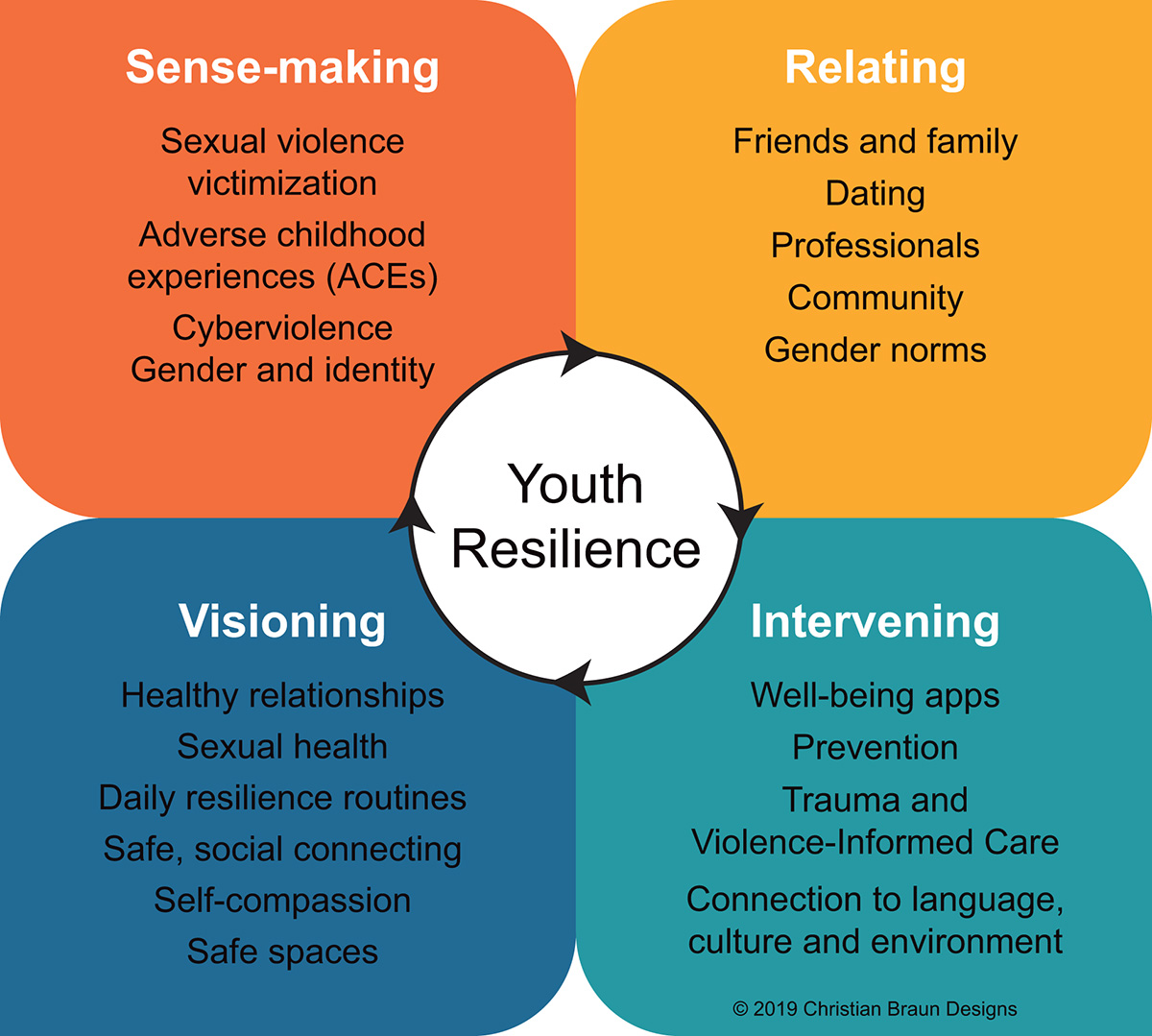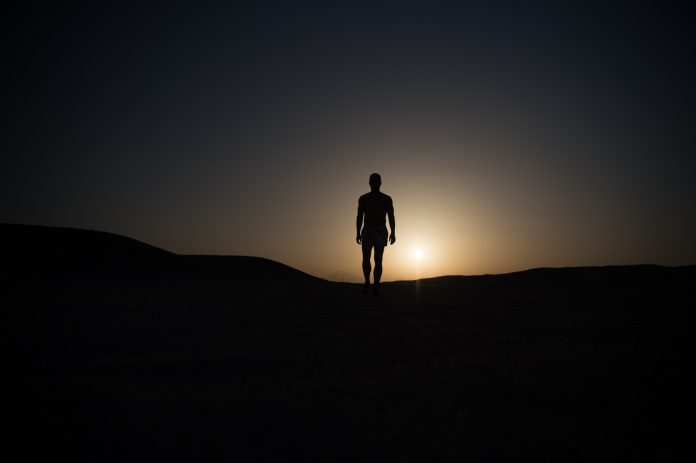Drs Christine Wekerle, Aislin Mushquash and Christopher Mushquash discuss youth resilience via their research
Here, Dr Christine Wekerle explains her in-depth research into youth resilience, which proposes an innovative tool to help cope with trauma.
Youth resilience emerges out of adversity. The American Psychological Association’s definition of resilience highlights the features of adaptability and functionality during distress. Trauma, especially sexual violence, is a situation of high stress that reverberates beyond the individual incident(s). In this 30th anniversary year of the UNCRC, we are reminded of the strong prioritisation of sexual violence prevention; with youth themselves identifying gender inequality as a driver of their victimisation.
The 2030 Sustainable Development Goals reinforce youth rights and resilience. Funded by the Canadian Institutes of Health Research, a boys’ and men’s health research team’s work (CIHRTeamSV) highlights how trauma intersects with sex and gender to suggest different pathways to resilience, and the need to include the male victim experience. Gaze aversion does not assist us to stand up, step forward, speak out, safeguard and support. The 2030 Sustainable Development Goals challenge clinical psychologists, as interventionists, to consider the problem of sexual violence, and its relationship to mental health, in crafting solutions to promote wellbeing with gender equity. Enhancing resilient lifestyle skills potentiates positive adolescent development, the prevention of non-communicable diseases, and healthy trajectories across the lifespan.

The model of youth resilience
CIHRTeamSV research has found that:
- Childhood sexual abuse, or CSA, increases the likelihood of males receiving violence in their romantic partnerships.
- Adolescent male victims of CSA report lower self-esteem than female victims, and are at high risk for suicide attempts.
- Most university students have experienced at least one Adverse Childhood Experience (ACE) event.
- Young adult males in university, who report alcohol-involved sexual violence victimisation, also report high anxiety.
Resilience findings include:
- Self-compassion as an important process for victims’ sense-making.
- Positive disclosure experiences seem to relate to lower post-traumatic stress.
- Relating is a key to success; school is an important site for resilience with actions, such as gay-straight alliances.
- Practicing positive community traditions fosters balanced emotionality.
- Humane design games (i.e., those that are conscientious of their impacts on the users’ wellbeing) are seemingly a good-fit modality for male wellness.
Emotion regulation and cognitive focusing are key methods for better coping with stress. Dr Christopher Mushquash, an Indigenous mental health and addictions researcher, has found that youth value “doing” activities (e.g., land-based) and social justice. With a more holistic approach, the self is seen in relation to community traditions and the natural world, where wellness reflects balance among physical, emotional, mental and spiritual wellbeing. The goal of having “a good mind” is consistent with developing a resilient mindset.
Taken together, CIHRTeamSV findings form a model of youth resilience, and are grouped in a ResearchGate project. Collating commonalities, four key areas emerge for youth healing from trauma: (1) sense-making; (2) relating; (3) intervening; and (4) visioning. This has led to innovations that capitalise on youths’ preferences for technology and informal support, as well as utilising humane design gaming research that shows how structure and ordering dampen posttraumatic stress. Similarly, the VEGA project, with leadership from CIHRTeamSV researcher, Dr Harriet MacMillan, uses gaming as part of the evidence-based training for clinicians to upskill on responding to victimisation.
Understanding the stigma male youth feel
Understanding the stigma male youth feel in accessing mental health services proactively (rather than in crisis or not at all), the technology approach seems well-suited to circumvent unhelpful masculinity notions of total self-reliance and devaluing emergency emotions.
Supporting male youth connectedness is consistent with Indigenous views of interdependence. The JoyPopTM app is developed from a positive psychology, trauma and violence-informed framework. It puts the focus on structure in journaling, social connecting, and gaming, while directing attention to positive emotion. JoyPop’s positive psychology approach puts resilience in action.
Dr Wekerle developed JoyPopTM and, with Dr Aislin Mushquash as research lead, has launched a project to understand how educational success is supported by resilience for youth transitioning to university. The first year of university is an acknowledged risk period for sexual assaults, suicidality, and high levels of substance abuse. This pilot study research had first-year undergraduates use the JoyPopTM app for four weeks at least twice daily, completing app activities (e.g., breathing exercises, reflective journaling, tracking mood, Tetris-like gaming, and social circle connecting). Findings from this study indicate that approximately 80% of participants have experienced at least one ACE. Preliminary analyses revealed that participants with more ACEs had lower levels of resilience and higher scores on negative affect, depressive symptoms, and emotion dysregulation. Examining change over time suggests that resilience and positive affect increased for most participants, while negative affect, depressive symptoms, and emotion dysregulation decreased for most participants.
Overall, these findings indicate that youth making the transition to university benefit from using the app, encouraging further research in technology-based resilience interventions. Youth rights and resilience are intertwined, and technology can support youth to develop their protective, resilient life skills.
Resources:
- https://youthresilience.net/
- https://vegaproject.mcmaster.ca/
- https://www.youtube.com/channel/UCwb2FU5KNOmazMX175ALKFQ
CIHRTeamSV research publications:
Drs Christine Wekerle, Aislin Mushquash, & Christopher Mushquash will be presenting their research at the 2020 Resilience: Equity in Gender, Health & Water Conference taking place on March 6th and 7th, 2020 in Hamilton, Ontario Canada. To learn more about this conference please visit https://youthresilience.net/resilience-equity-in-gender-health-and-water-conference-march-6-7-2020.
*Please note: this is a commercial profile.











